
Mekele: A Gateway to Ethiopia's Rich History and Natural Wonders
Mekele, the vibrant capital of the Tigray region in Ethiopia, is a city steeped in history and culture. Nestled in the northern highlands, Mekele serves as a focal point for exploring the ancient and medieval history of Ethiopia. The city is known for its warm hospitality and offers a unique blend of historical landmarks, traditional markets, and modern amenities. One of Mekele's most significant attractions is the Tigray Rock-Hewn Churches. These ancient churches, carved into the rugged mountains, are a testament to the region's religious history and architectural prowess. Visitors can explore these awe-inspiring structures and witness stunning frescoes and intricate carvings that date back to the 4th century. Mekele is also the gateway to the Danakil Depression, one of the hottest and most inhospitable places on earth. Despite its harsh environment, the Danakil Depression offers surreal landscapes, including salt flats, sulfur springs, and active volcanoes, making it a must-visit for adventurous travelers. The vibrant local markets in Mekele, such as the bustling Grand Market, provide a glimpse into the daily lives of the locals and offer an array of traditional crafts, spices, and textiles. For those interested in history, the Mekele Museum is a treasure trove of artifacts and exhibits that chronicle the rich cultural heritage of the Tigray region. Additionally, the city's lively cafes and restaurants serve up delicious Ethiopian cuisine, with local specialties like injera and tibs that are sure to tantalize your taste buds. Mekele's unique blend of historical intrigue, natural beauty, and cultural richness makes it a captivating destination for any traveler.
Local tips in Mekele
- Visit the Tigray Rock-Hewn Churches early in the morning to avoid the heat and crowds.
- Hire a local guide for a more in-depth exploration of the historical sites and to navigate the remote areas safely.
- Bring plenty of water and sun protection when visiting the Danakil Depression due to extreme temperatures.
- Try the local dish called 'Shiro' for a true taste of Tigray cuisine.
- Respect local customs and dress modestly, especially when visiting religious sites.
- Visit the Grand Market to buy traditional crafts and spices as souvenirs.
Mekele: A Gateway to Ethiopia's Rich History and Natural Wonders
Mekele, the vibrant capital of the Tigray region in Ethiopia, is a city steeped in history and culture. Nestled in the northern highlands, Mekele serves as a focal point for exploring the ancient and medieval history of Ethiopia. The city is known for its warm hospitality and offers a unique blend of historical landmarks, traditional markets, and modern amenities. One of Mekele's most significant attractions is the Tigray Rock-Hewn Churches. These ancient churches, carved into the rugged mountains, are a testament to the region's religious history and architectural prowess. Visitors can explore these awe-inspiring structures and witness stunning frescoes and intricate carvings that date back to the 4th century. Mekele is also the gateway to the Danakil Depression, one of the hottest and most inhospitable places on earth. Despite its harsh environment, the Danakil Depression offers surreal landscapes, including salt flats, sulfur springs, and active volcanoes, making it a must-visit for adventurous travelers. The vibrant local markets in Mekele, such as the bustling Grand Market, provide a glimpse into the daily lives of the locals and offer an array of traditional crafts, spices, and textiles. For those interested in history, the Mekele Museum is a treasure trove of artifacts and exhibits that chronicle the rich cultural heritage of the Tigray region. Additionally, the city's lively cafes and restaurants serve up delicious Ethiopian cuisine, with local specialties like injera and tibs that are sure to tantalize your taste buds. Mekele's unique blend of historical intrigue, natural beauty, and cultural richness makes it a captivating destination for any traveler.
When is the best time to go to Mekele?
Iconic landmarks you can’t miss
ሆቴል ፕላኔት መቐለ / Planet Hotel Meqelle
Discover luxury and comfort at Planet Hotel in Mekelle, a perfect base for exploring Ethiopia's rich culture and history.

ኣኽሱም ሓውልት | ሓወልቲ ኣኽሱም ቑፅሪ-1 | Akhsum Obelisk No-1
Explore the Aksum Obelisk No-1, a UNESCO World Heritage Site that showcases Ethiopia's ancient architecture and rich cultural history.
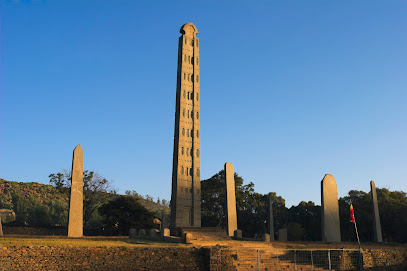
karibu kitchen bar
Experience the vibrant flavors of Ethiopia at Karibu Kitchen Bar, where every meal is a celebration of culture and taste.
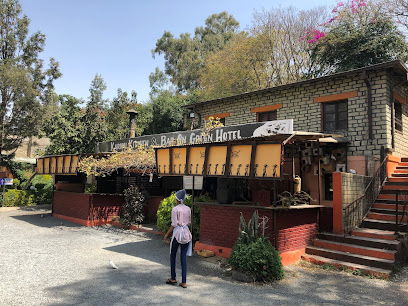
ኢንተርናሽናል ሆቴል ደስታ | Desta International Hotel
Experience the heart of Mekele at Desta International Hotel, where local charm meets modern comfort in a serene setting.
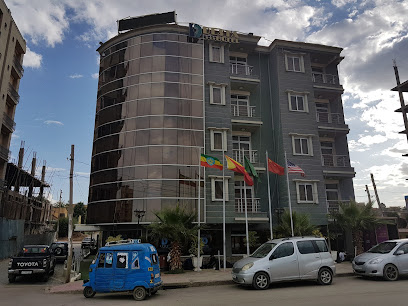
Atse Yohannes IV Museum ሙዝየም ሃፀይ ዮዉሃንስ 4ይ
Discover the rich heritage of Ethiopia at Atse Yohannes IV Museum, where history comes alive through captivating exhibits and artifacts.
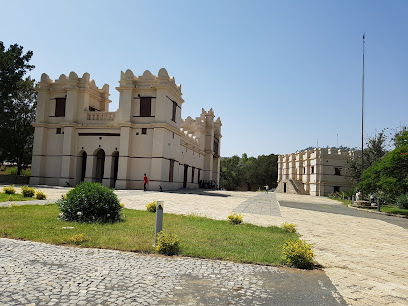
Atse Yohannes Hotel
Experience the warmth and comfort of Atse Yohannes Hotel, your ideal base for exploring the historic city of Mekele, Ethiopia.

መቐለ ኣሉላ ኣባ ነጋ ዓለም ለኸ መዕረፊ ነፈርቲ Meqelle Alula Aba Nega International Airport
Explore the stunning landscapes and rich culture of Tigray, Ethiopia, starting from Mekele Alula Aba Nega International Airport.
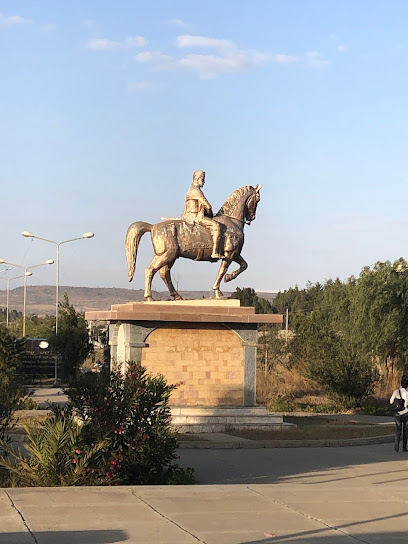
Noble House Yehdega Luxury Boutique Hotel
Discover the charm and luxury of Noble House Yehdega Boutique Hotel in Mekele, where hospitality meets sophistication.

ቤተክርስትያን ጨርቆስ ዉቅሮ/ Wukro Cherkos church
Discover the breathtaking beauty and spiritual depth of Wukro Cherkos Church, a unique rock-hewn marvel in Ethiopia's Tigray region.
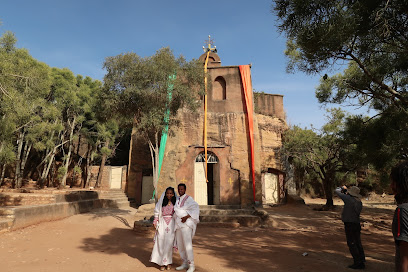
Mekelle
Discover the captivating blend of history, culture, and stunning landscapes in Mekelle, the vibrant heart of Ethiopia's Tigray region.
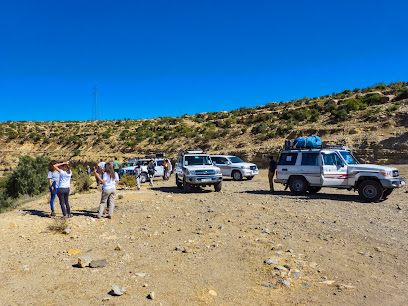
Tigray Stadium
Discover the vibrant atmosphere of Tigray Stadium in Mekele, where sports, culture, and community come together for an unforgettable experience.
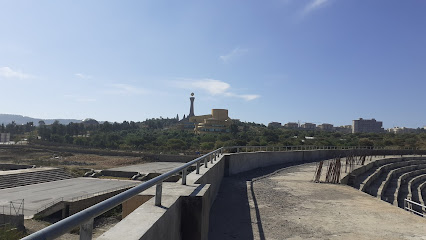
Mekelle City Administration
Explore the Mekelle City Administration, a unique glimpse into Ethiopian governance and local culture in the vibrant city of Mekelle.
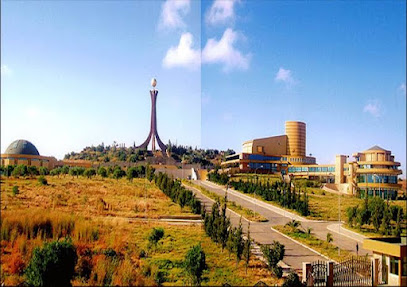
ጮምዓ መስቀል / ch’omi’ā Mekele Meskel Square
Experience the vibrant culture and serene beauty of Ch’omi’ā Mekele Meskel Square, the heart of Mekele, Ethiopia.
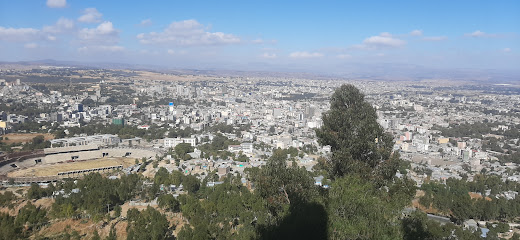
ቤተ መዘክር ሓወልቲ ሰማእታት መቐለ / Martyrs' Monument Museum Mekelle
Explore the Martyrs' Monument Museum in Mekelle, a moving tribute to resilience and history, perfect for understanding Ethiopia’s cultural heritage.
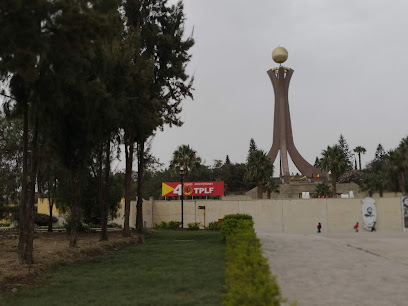
Rock Ethiopia Tours
Discover the beauty and history of Tigray, Ethiopia with Rock Ethiopia Tours - your expert travel guide to unforgettable adventures.
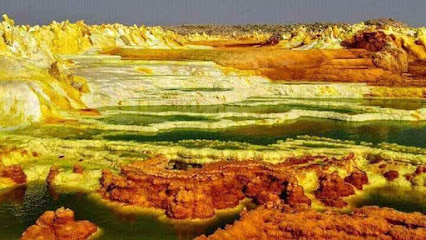
Unmissable attractions to see
ገዳም ኣብርሃ ወ ኣፅብሃ | Abreha and Atsbeha Monstary
Explore the historic Abreha and Atsbeha Monastery, a rock-carved marvel of Ethiopian Orthodox Christianity, steeped in tradition and spirituality.
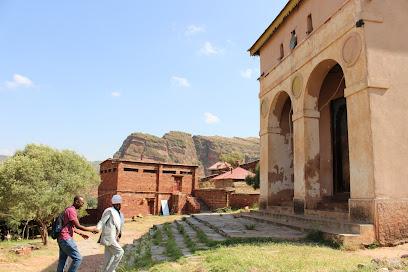
Emperor Yohannes IV Palace Museum, Tigray ቤተ መዘክር ቤተ መንግስቲ ሃፀ ዮሃንስ ፬ይ፣ትግራይ
Explore the profound history of Ethiopia at the Emperor Yohannes IV Palace Museum in Mekele, where royal heritage and captivating artifacts await.
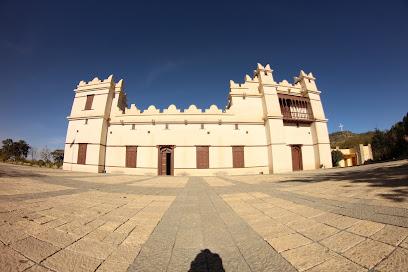
ጮምዓ መስቀል / ch’omi’ā Mekele Meskel Square
Discover the enchanting Ch’omi’ā Mekele Meskel Square, a vibrant city park in Mekele, Ethiopia, perfect for relaxation and cultural experiences.
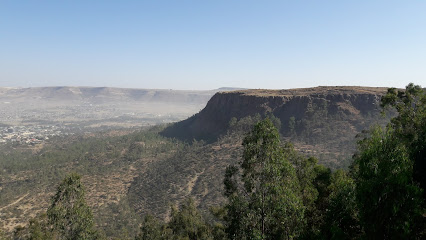
ጨለዓንቋ መንጫዕጫዕታ ( CheleAnqua Waterfall)
Experience the breathtaking beauty of CheleAnqua Waterfall, a hidden gem in Adi Noguade, perfect for nature lovers and adventure seekers.

Michael Amba
Explore Michael Amba: A captivating blend of nature and culture in the heart of Aicamessal, Ethiopia.
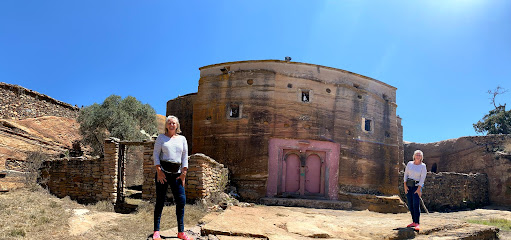
Martyrs Memorial Center Office
Explore the Martyrs Memorial Center in Mekele, a serene park that honors the sacrifices of Ethiopia's past while offering a peaceful escape for reflection.
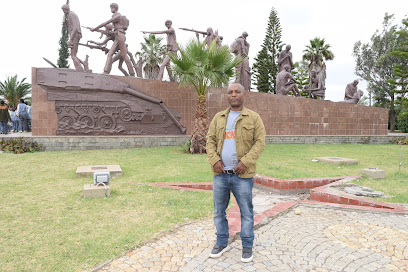
Enda Kidane Mihret
Discover the beauty and spirituality of Enda Kidane Mihret, a stunning church in Mekele showcasing Ethiopia's rich cultural heritage.
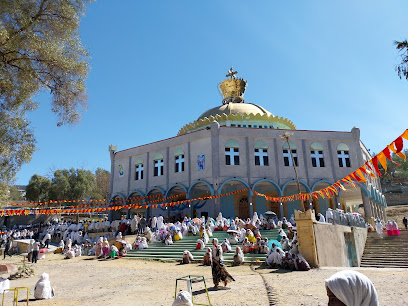
Tigray rock churches
Explore the breathtaking Tigray rock churches in Ethiopia, a blend of history, spirituality, and stunning natural beauty.
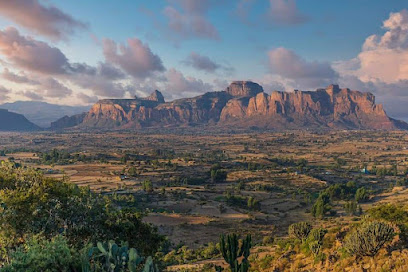
Adihawsi recreational center
Discover the serene beauty of Adihawsi Recreational Center in Mekele, a lush garden oasis perfect for relaxation and family outings.

ገዳም ሚካኤል እምባ / Gedam Mikeal Emba Church
Explore the enchanting Gedam Mikeal Emba Church in Aicamessal, a serene retreat showcasing Ethiopia's rich history and architectural beauty.
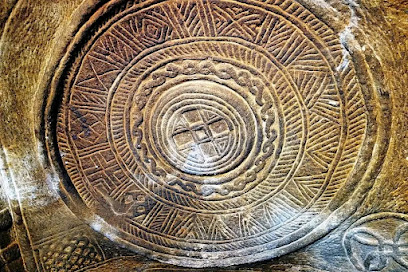
wezete
Explore Wezete, an enchanting tourist attraction in Mekele, Ethiopia, where stunning landscapes meet rich cultural heritage for a memorable experience.

ሓርኢ ሓጭን ስነ-ጥንታዊ ቦታ/ Hari'e Hachin archaeological site
Explore the ancient wonders of the Hari'e Hachin archaeological site in Wukro, Ethiopia, rich in history and stunning architecture.

Abala waterfall
Explore the breathtaking Abala Waterfall in Ethiopia, a stunning hiking destination surrounded by majestic landscapes and serene nature.
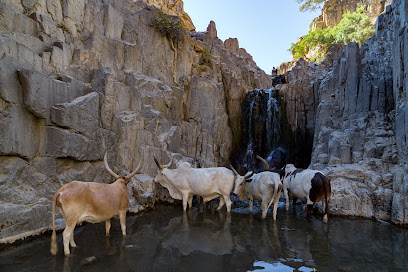
ምዕሩግ ተፈጥራኣዊ እምኒ / Naturally Stone paved
Explore the Naturally Stone Paved paths in Adi Uorche, where nature meets artistry in a breathtaking scenic experience.
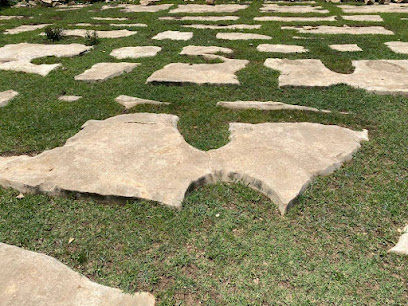
መቓብር ሰራዊት ጣልያን / Italian soldier grave
Explore the Italian Soldier Grave in Mekele, a solemn historical landmark honoring the sacrifices of soldiers during Ethiopia's turbulent past.
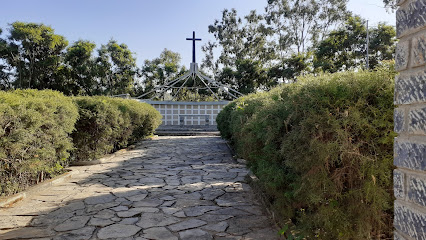
Essential places to dine
Geza Gerlase
Discover authentic Ethiopian flavors at Geza Gerlase in Mekele - where every dish tells a story.
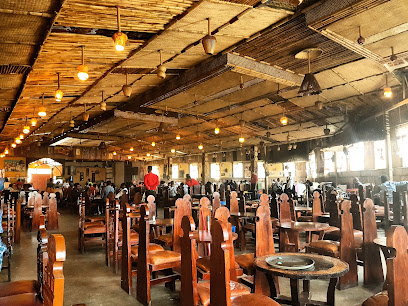
karibu kitchen bar
Savor the essence of Ethiopia with delectable dishes at Karibu Kitchen Bar in Mekele – an unmissable dining experience.
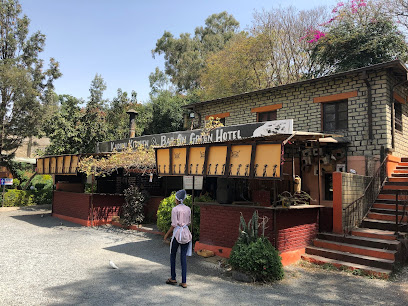
chapatti bbq and bar
Discover authentic Ethiopian flavors at Chapatti BBQ and Bar in Mekele – where every dish tells a story.
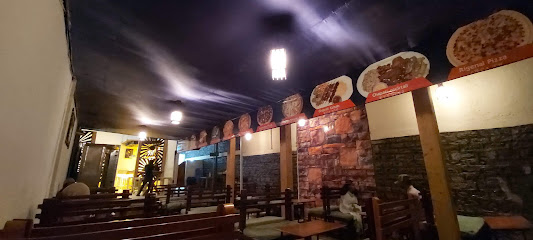
Habesha Restaurant
Experience the rich flavors and warm hospitality at Habesha Restaurant in Mekele – a true taste of Ethiopia.
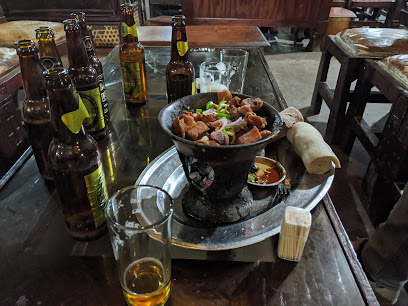
BEEFMN Garden Bar and Restaurant
Discover culinary delights at BEEFMN Garden Bar and Restaurant in Mekele - where local flavors meet international cuisine amidst beautiful gardens.
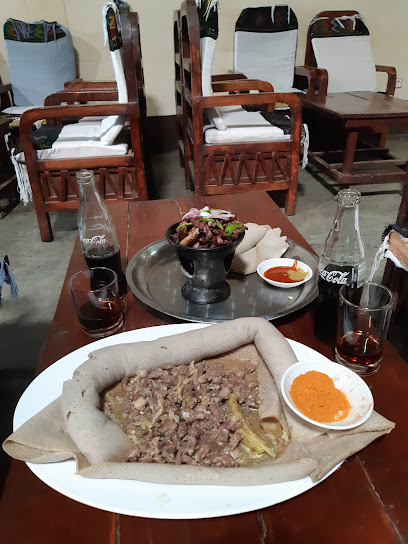
NatNa Spot
Experience authentic Ethiopian flavors at NatNa Spot in Mekele – a delightful restaurant offering warm hospitality and traditional dishes.
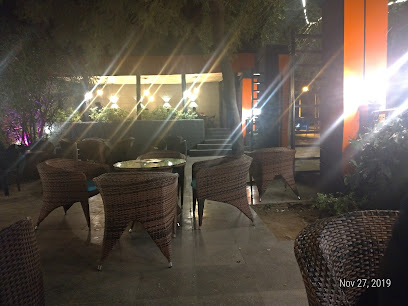
Semitic
Experience authentic Ethiopian cuisine at Semitic in Mekele—where every dish tells a story and every bite is an adventure.
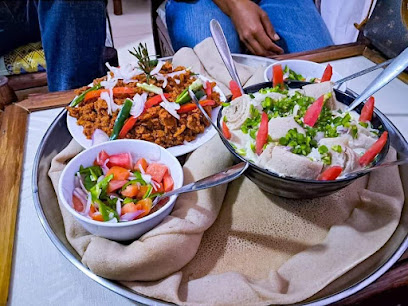
KIKI's CAFE & RESTAURANT
Experience the essence of Ethiopian hospitality at KIKI's Cafe & Restaurant in Mekele – where every meal tells a story.
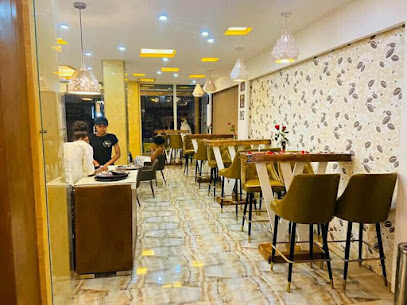
New day
Savor authentic Ethiopian cuisine at New Day in Mekele, where flavorful raw meat dishes and local traditions come alive.
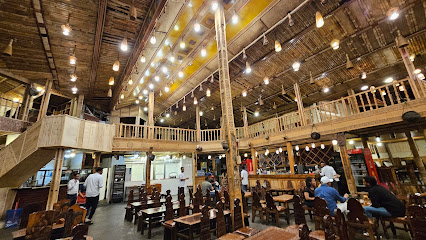
Deer Inn Kitchen
Experience authentic Ethiopian cuisine at Deer Inn Kitchen in Mekele - where every meal is a journey into local flavors.
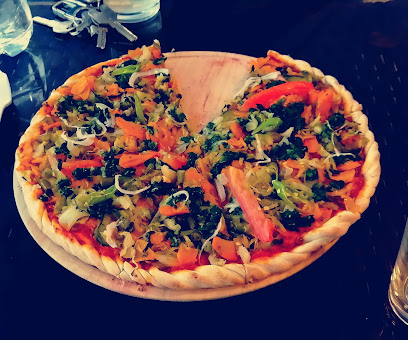
Tsigereda Snack Bar
Experience authentic Ethiopian cuisine at Tsigereda Snack Bar in Mekele – where every bite tells a story.
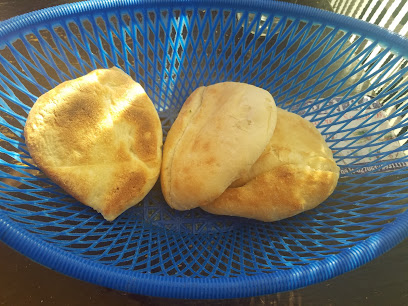
Family Cafe & Restaurant.
Discover authentic Ethiopian flavors at Family Cafe & Restaurant in Mekele, offering delightful meals in a family-friendly atmosphere.
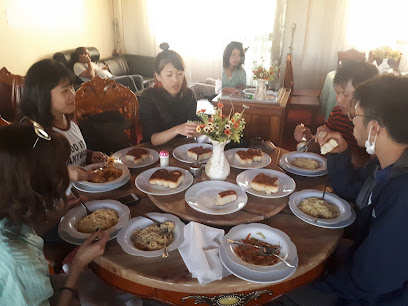
Boswellia Dining
Experience authentic Ethiopian cuisine at Boswellia Dining in Mekele – where every dish tells a story.
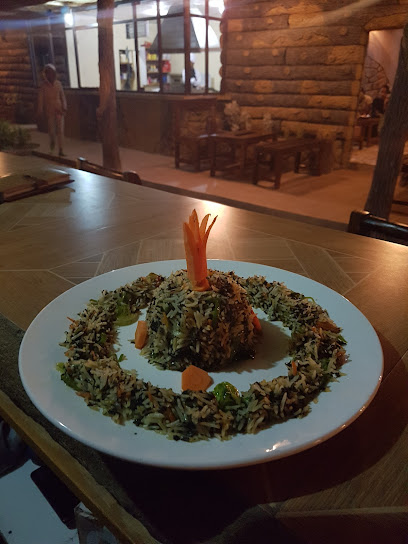
Green Valley cafe
Experience authentic Ethiopian flavors at Green Valley Cafe in Mekele - a cozy retreat for every traveler seeking delightful cuisine.
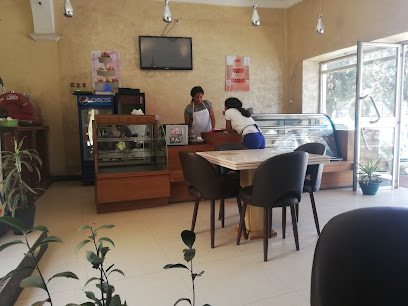
Crescent lounge beverage ( ኽረሰንት )
Experience authentic Ethiopian cuisine at Crescent Lounge in Mekele - where every meal tells a story.
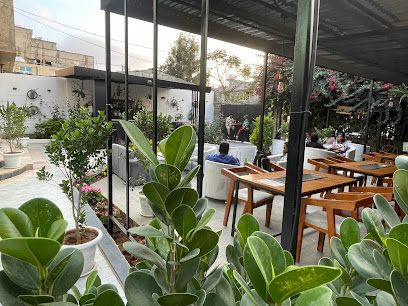
Markets, malls and hidden boutiques
Seti Supermarket
Explore the vibrant flavors of Ethiopia at Seti Supermarket in Mekele, your one-stop destination for local groceries and culinary delights.
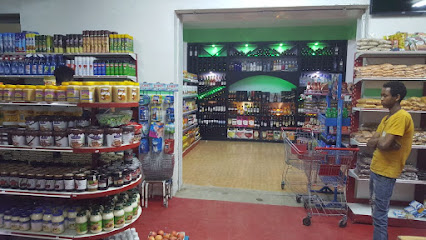
Haben Computer Centre
Explore the Haben Computer Centre in Mekele for a premier selection of electronics and expert tech services in a welcoming environment.
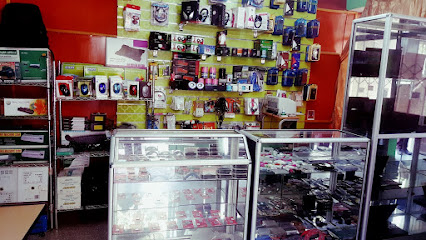
Nur Super Market
Discover the essence of Ethiopian culture at Nur Super Market in Mekele, offering fresh produce, local delicacies, and unique souvenirs.
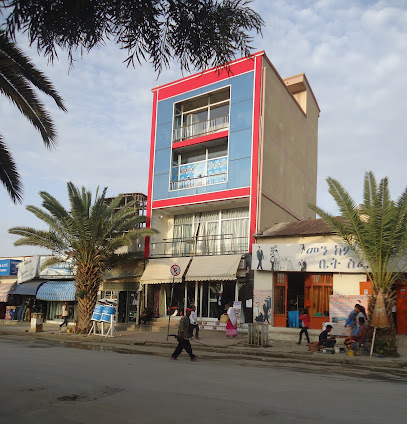
Samrawit Entertainment & Accessories
Discover top-notch gaming at Samrawit Entertainment & Accessories in Mekele, where passion meets technology in a vibrant atmosphere.
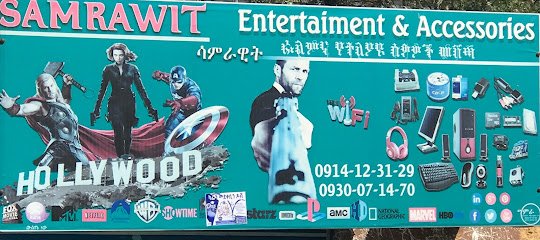
IQ corner
Experience the heart of Ethiopian coffee culture at IQ Corner, where rich flavors and warm ambiance come together in Mekele.
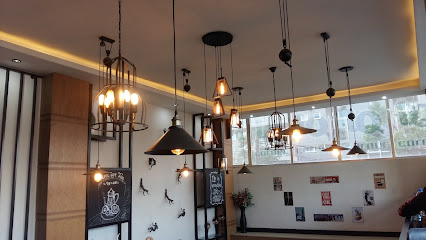
Happy Land kids game zone
Discover the joy of gaming at Happy Land Kids Game Zone, where young gamers can play, compete, and create unforgettable memories in Mekele.
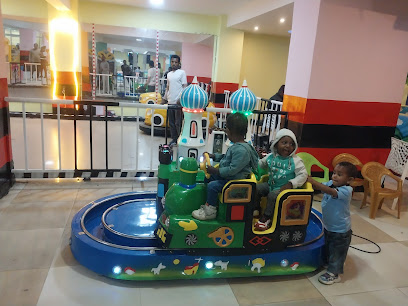
Baloni Coffee - ቡን ባሎኒ
Experience the rich flavors of Ethiopian coffee at Baloni Coffee in Mekele, where every cup tells a story.
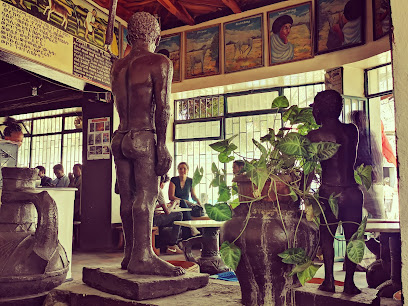
Vergin Hair and Fashion
Explore unique fashion accessories at Vergin Hair and Fashion in Mekele, blending local craftsmanship with contemporary style for every discerning traveler.
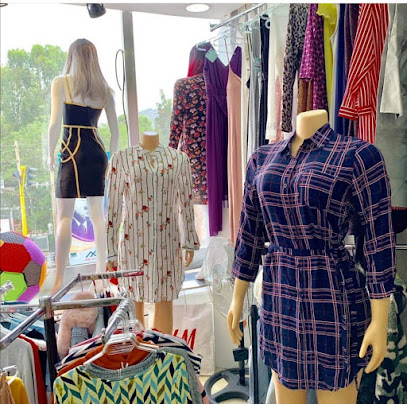
ፀጋይ ኤሌክትሮኒክስ ፅገና
Explore cutting-edge electronics at ፀጋይ ኤሌክትሮኒክስ ፅገና in Mekele – where innovation meets quality in a vibrant shopping experience.

Mekele
Discover the vibrant markets and rich cultural heritage of Mekele, the heart of Ethiopia's Tigray region, filled with unique crafts and local flavors.
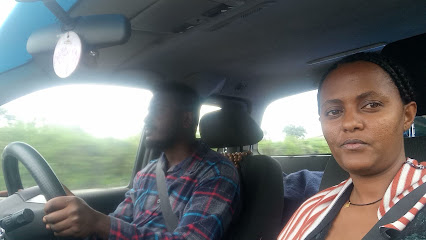
TOP SHOP TOP MAN
Discover fashionable apparel and accessories at TOP SHOP TOP MAN, a trendy clothing store in Mekele, perfect for stylish travelers.
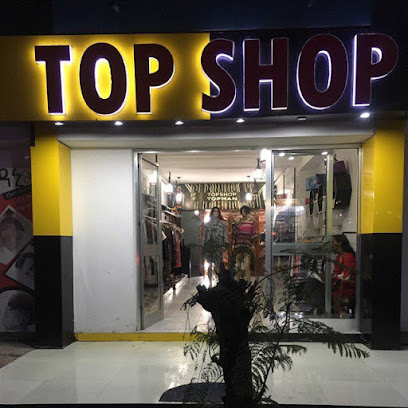
Ekklesia Drug Shop
Discover Ekklesia Drug Shop in Mekele: Your trusted pharmacy for health essentials and wellness products.
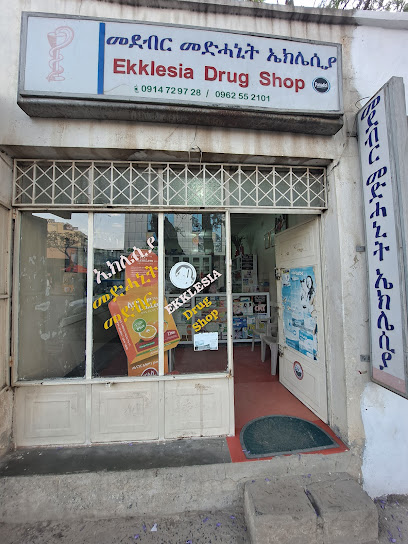
Mizer Decor
Discover Mizer Decor in Mekele for all your car accessory needs, where quality meets style in a welcoming environment.
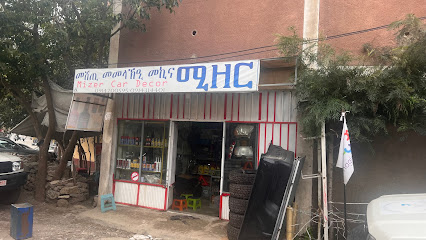
Near Harmaz Building Materials Shop
Explore Harmaz Building Materials Shop in Mekele for quality supplies and expert advice, catering to all your construction needs with a local touch.
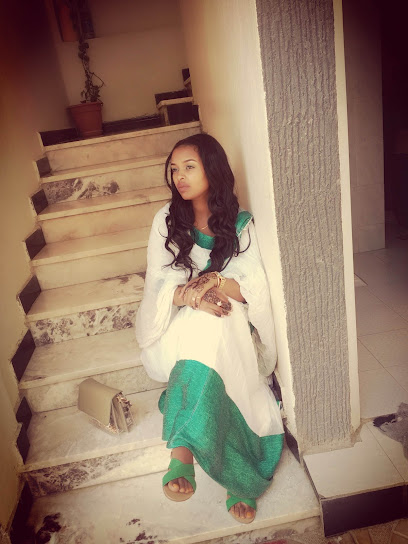
Selina's Traditional Clothing
Discover the rich heritage of Ethiopia through traditional garments at Selina's Clothing Store in Mekele, a cultural treasure for every traveler.
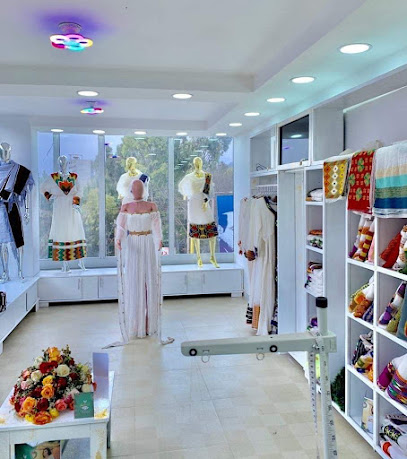
Essential bars & hidden hideouts
Uptown Lounge Mekelle
Discover the lively nightlife at Uptown Lounge Mekelle - a vibrant bar offering local drinks and a welcoming atmosphere in the heart of Mekelle.
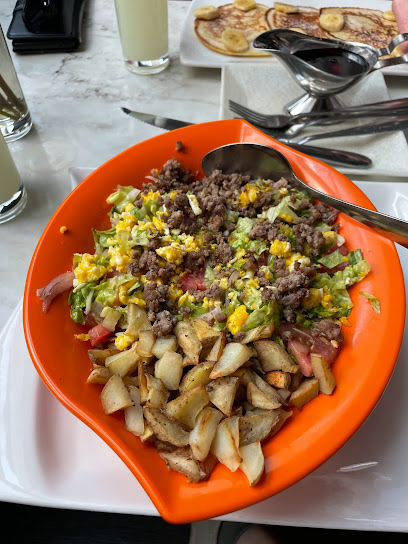
ዳ ቃል ዊስኪ ቤት
Immerse yourself in the lively ambiance of ዳ ቃል ዊስኪ ቤት, a premier bar in Mekele, where local culture and vibrant nightlife meet.
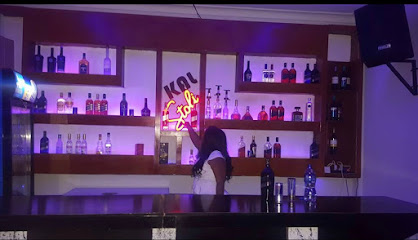
ካፌ ሮያል / Royal Cafe
Discover the vibrant ambiance and local flavors at Royal Cafe in Mekele, a must-visit bar for tourists seeking a taste of Ethiopia.

ዳ ቃል Lounge
Unwind at ዳ ቃል Lounge, a vibrant bar in Mekele, offering a taste of local culture and nightlife with every sip.

Tee chat lounge
Discover the vibrant atmosphere of Tee Chat Lounge in Mekele, where locals and tourists come together for refreshing drinks and good company.
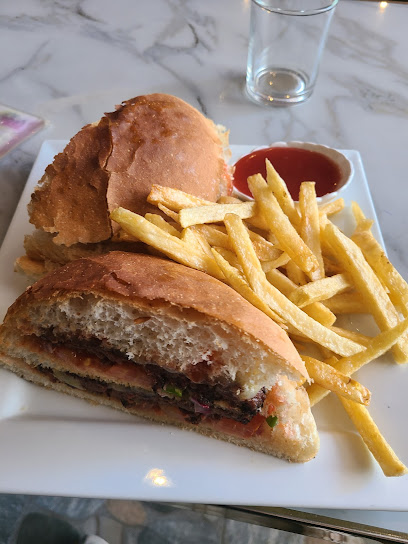
Geza bereket GB LOUNGE
Discover the vibrant atmosphere of Geza Bereket GB Lounge in Mekele, where local flavors and a welcoming ambiance create unforgettable moments.
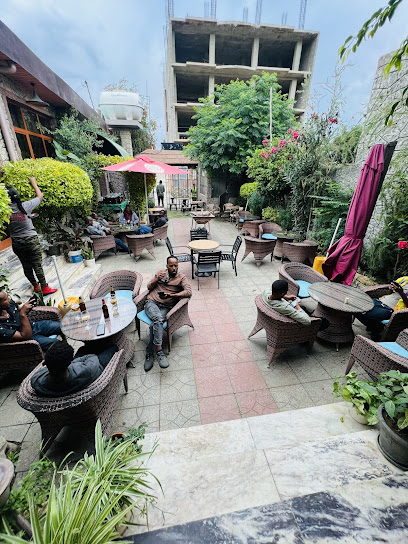
Meaza Bar & Restaurant
Discover the flavors of Ethiopia at Meaza Bar & Restaurant, a vibrant destination in Mekele for authentic cuisine and local drinks.

Selam peace house
Discover the serene ambiance of Selam Peace House in Mekele, where local culture meets refreshing drinks in a cozy setting.
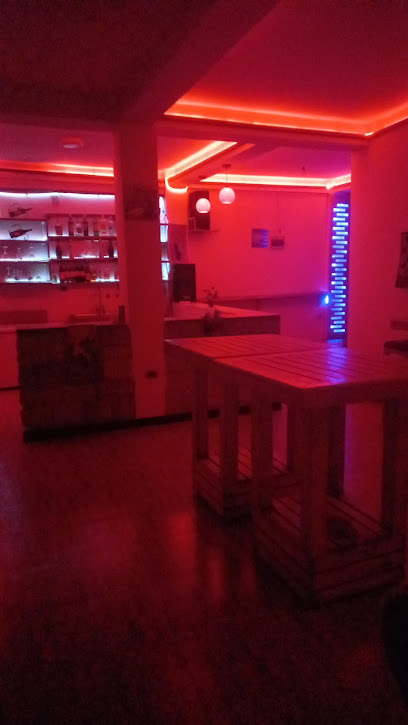
ኦሎምፒኣ ባር
Explore the energetic vibe of ኦሎምፒኣ ባር in Mekele, a perfect blend of local culture, refreshing drinks, and entertainment.

Nucamp cafe
Discover the vibrant essence of Mekele at Nucamp Café, where local culture meets delightful drinks in a cozy atmosphere.

Ethiopia Hotel
Experience the vibrant charm and hospitality of Ethiopia Hotel, a lively bar in Mekele where culture and relaxation meet.

Ksuu
Discover the lively bar scene at Ksuu in Mekele, where vibrant atmosphere meets local culture and hospitality.

ማእኸል ትግራይ ምግብ ቤት
Experience authentic Tigrayan cuisine and vibrant local culture at ማእኸል ትግራይ ምግብ ቤት in Mekele.

Bar Momona ባር ሞሞና
Experience the lively atmosphere and diverse drink selection at Bar Momona, a vibrant bar in the heart of Mekele, Ethiopia.

Local Phrases
-
- Helloሰላም
[sälam] - Goodbyeወደ ላም
[wädä lam] - Yesአዎ
[awo] - Noአይ
[ay] - Please/You're welcomeእባክዎ
[ebakäwo] - Thank youአመሰግናለሁ
[amäsägänalähu] - Excuse me/Sorryበትክል
[bätkäl] - How are you?እንዴት ነህ?
[ändet näh?] - Fine. And you?አስተካል. እኛ?
[ästäkal. äng] - Do you speak English?እንዴት እንዴት እንግሊዝኛ አድርገህ?
[ändet endet inglizna adrägäh?] - I don't understandበአማኞቹ አላውቅም
[bäamanochu alawqäm]
- Helloሰላም
-
- I'd like to see the menu, pleaseማንዳ ልውላዊ እጅግ ለእርዳታ
[manda lwälawi ejig lä'erdäta] - I don't eat meatአልባል ባለን
[albal balän] - Cheers!ሃሎ!
[halo!] - I would like to pay, pleaseእባክዎ እርዳታ ለፈጥነው
[ebakäwo erdäta lafetänäw]
- I'd like to see the menu, pleaseማንዳ ልውላዊ እጅግ ለእርዳታ
-
- Help!እስማማለሁ!
[esmamalähu!] - Go away!ተልከኝ!
[täläkän!] - Call the Police!ፖሊስ አጠቃላይ!
[polis atäqalay!] - Call a doctor!የጡት ሜዳ አጠቃላይ!
[yätu mäda atäqalay!] - I'm lostተከስቷል
[täkäscäl] - I'm illእኔ በስሜ አልተላለፍም
[änä bäsmä altälafäm]
- Help!እስማማለሁ!
-
- I'd like to buy...ተመልከት እርዳታ...
[temäläkät erdäta...] - I'm just lookingለምግባች ነኝ
[lämgäbachä näg] - How much is it?በድምፅ እስከ?
[bädämsi käsäk?] - That's too expensiveእርሱ ብላቴ ነው
[ärsu bäläte näw] - Can you lower the price?ብርትኛሽ ትኖሩ ነህ?
[brtänäsh tonuru näh?]
- I'd like to buy...ተመልከት እርዳታ...
-
- What time is it?ሰዓት ነው?
[sä'at näw?] - It's one o'clockአንድ ሰዓት ነው
[and sä'at näw] - Half past (10)አምስት ሰዓት
[amist sä'at] - Morningጥምቀት
[t'imqät] - Afternoonቀንቀን
[qänqän] - Eveningማታ
[mata] - Yesterdayትናንስ
[tänas] - Todayዛሬ
[zar] - Tomorrowነገር
[nägär] - 1አንድ
[and] - 2ሁለት
[hulet] - 3ሶስት
[sost] - 4አራት
[arat] - 5አምስት
[amist] - 6ስድስት
[sidist] - 7ሰባት
[säbat] - 8ስምንት
[simint] - 9ዘጠኝ
[zätän] - 10አስር
[asar]
- What time is it?ሰዓት ነው?
-
- Where's a/the...?ለእርዳታ...
[lä'erdäta...] - What's the address?አድራሻ ማን ነው?
[adrasha man näw?] - Can you show me (on the map)?ምን እርዳታ አለኝ?
[min erdäta alän] - When's the next (bus)?ቀጣይ ሰዓት ነው?
[k'atay sä'at näw?] - A ticket (to ....)ትኬት (...)
[tikät (...)]
- Where's a/the...?ለእርዳታ...
History of Mekele
-
Mekele, the capital of the Tigray Region in northern Ethiopia, was founded in the early 19th century by Emperor Yohannes IV. Originally a small village, it was transformed into a bustling city under his reign as he chose Mekele as his seat of power.
-
Emperor Yohannes IV, who ruled Ethiopia from 1872 until his death in 1889, played a pivotal role in Mekele's development. His palace, built in the 1880s, remains one of the city's most significant landmarks. The grand structure, now a museum, offers insights into the emperor's reign and the region's history.
-
Though not directly within Mekele, the Battle of Adwa in 1896 had profound implications for the region. Ethiopian forces, under the leadership of Emperor Menelik II, defeated the Italian army, ensuring Ethiopia's sovereignty. This victory is a source of immense pride for the people of Tigray, including those in Mekele.
-
During the Second Italo-Ethiopian War (1935-1937), Mekele was occupied by Italian forces. The city became a center of resistance, with local fighters engaging in guerrilla warfare against the occupiers. Many of the city's older residents still recount stories of bravery and resilience from this tumultuous period.
-
Mekele played a crucial role during the Ethiopian Civil War (1974-1991). The Tigray People's Liberation Front (TPLF), which was founded in the region, used Mekele as a strategic base. The city's residents supported the TPLF in their struggle against the Derg regime, contributing to the eventual overthrow of the government.
-
Following the end of the civil war, Mekele experienced significant growth and modernization. Infrastructure improvements, the establishment of Mekele University in 2000, and increased investment in the region have transformed the city into a vibrant educational and economic hub.
-
Mekele is rich in cultural heritage, with numerous festivals and traditions that reflect the Tigrayan way of life. Notable events include the annual Ashenda festival, which celebrates young women and is marked by song, dance, and traditional attire. The city's markets are also a hive of activity, offering a glimpse into the daily lives and customs of its residents.
Mekele Essentials
-
Mekele is accessible via Alula Aba Nega Airport (MQX), which is situated approximately 10 kilometers from the city center. The airport has regular flights connecting to Addis Ababa, the capital of Ethiopia. From the airport, you can take a taxi or arrange for hotel transfers to reach the city center. Alternatively, Mekele is connected by road, and you can take long-distance buses or hire private cars from Addis Ababa. The journey by road typically takes around 12 hours.
-
Within Mekele, local transportation options include minibuses, taxis, and Bajaj (three-wheeled vehicles). Minibuses are the most common and economical mode of transportation for getting around the city. Taxis are available and can be hired for short trips or for the entire day. Bajaj are useful for navigating narrow streets and for short distances. Car rentals are also an option for those who prefer to explore independently.
-
The official currency of Ethiopia is the Ethiopian Birr (ETB). It is advisable to carry cash, as credit card acceptance is limited to major hotels and some upscale restaurants. ATMs are available in Mekele, but it is prudent to have sufficient cash on hand, especially when traveling to more remote areas. Currency exchange services are available at banks and authorized exchange bureaus.
-
Mekele is generally considered safe for tourists, but it is important to exercise standard precautions. Avoid walking alone at night and be cautious in crowded areas to prevent pickpocketing. The neighborhood around the bus station can be particularly busy and chaotic, so stay alert. Always use registered taxis and avoid accepting rides from strangers. It is also advisable to avoid political gatherings and demonstrations.
-
In case of emergency, dial 911 for police assistance and 907 for medical emergencies. Mekele has several hospitals and clinics that provide medical care, including Ayder Referral Hospital. It is recommended to have travel insurance that covers medical emergencies. For minor health issues, pharmacies are available where you can purchase over-the-counter medications.
-
Fashion: Do dress modestly, especially when visiting religious sites. Avoid wearing revealing clothing. Religion: Do respect local customs and traditions. Always remove your shoes before entering churches and cover your head if required. Public Transport: Do be respectful and give up your seat to elderly passengers. Don't eat or drink on public transport. Greetings: Do greet people with a handshake. A slight bow of the head is also a sign of respect. Eating & Drinking: Do try local delicacies and accept food offerings graciously. Don't refuse hospitality, as it is considered impolite.
-
To experience Mekele like a local, visit the local markets such as the Endayesus Market, where you can buy fresh produce and traditional Ethiopian goods. Engage with locals, as they are often friendly and willing to share stories about the city's history and culture. Don't miss visiting the Martyrs' Memorial Monument and the historic Emperor Yohannes IV Palace. For a unique experience, take a hike to the nearby Gheralta Mountains, known for their stunning rock-hewn churches and breathtaking landscapes.
Trending Landmark in Mekele
-
ሆቴል ፕላኔት መቐለ / Planet Hotel Meqelle
-
ኣኽሱም ሓውልት | ሓወልቲ ኣኽሱም ቑፅሪ-1 | Akhsum Obelisk No-1
-
karibu kitchen bar
-
ኢንተርናሽናል ሆቴል ደስታ | Desta International Hotel
-
Atse Yohannes IV Museum ሙዝየም ሃፀይ ዮዉሃንስ 4ይ
-
Atse Yohannes Hotel
-
መቐለ ኣሉላ ኣባ ነጋ ዓለም ለኸ መዕረፊ ነፈርቲ Meqelle Alula Aba Nega International Airport
-
Noble House Yehdega Luxury Boutique Hotel
-
ቤተክርስትያን ጨርቆስ ዉቅሮ/ Wukro Cherkos church
-
Mekelle
-
Tigray Stadium
-
Mekelle City Administration
-
ጮምዓ መስቀል / ch’omi’ā Mekele Meskel Square
-
ቤተ መዘክር ሓወልቲ ሰማእታት መቐለ / Martyrs' Monument Museum Mekelle
-
Rock Ethiopia Tours
Nearby Cities to Mekele
-
Things To Do in Axum
-
Things To Do in Adi Quala
-
Things To Do in Adi Keyh
-
Things To Do in Lalibela
-
Things To Do in Mendefera
-
Things To Do in Dekemhare
-
Things To Do in Asmara
-
Things To Do in Gondar
-
Things To Do in Keren
-
Things To Do in Bahir Dar
-
Things To Do in Teseney
-
Things To Do in Debre Markos
-
Things To Do in Dikhil
-
Things To Do in Tadjoura
-
Things To Do in Arta








